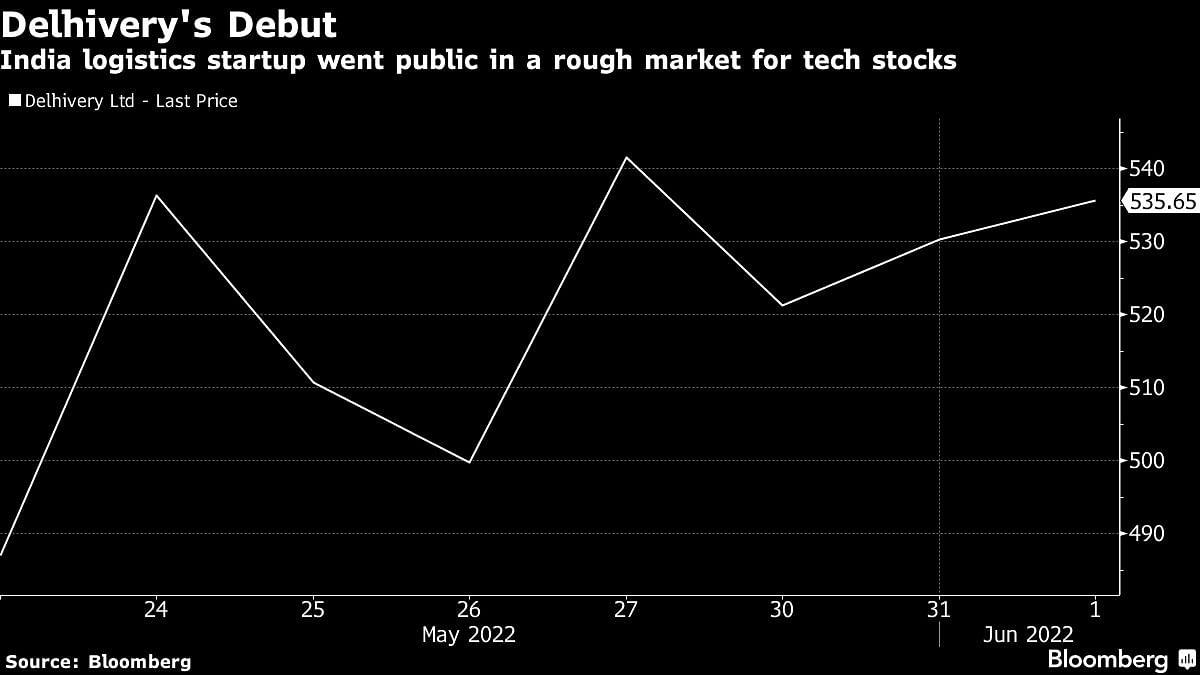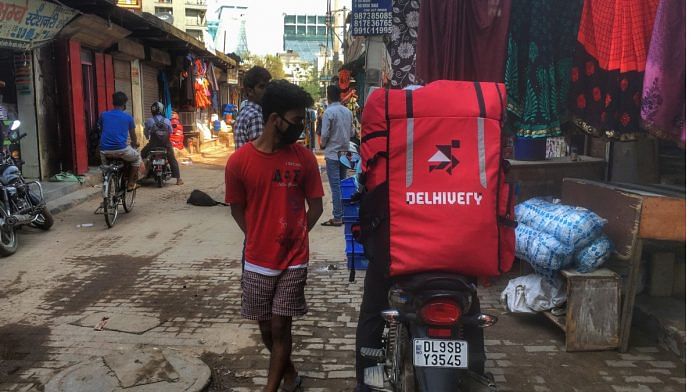Bangalore: Sahil Barua, chief executive officer of logistics startup Delhivery Ltd., minces no words about the process of going public in what’s shaping up to be an historic meltdown in the technology industry.
“It was nerve-wracking,” said the 37-year-old, who is also a co-founder.
The IPO last week came only after months of discussions with potential investors and investment bankers, Barua said in a video chat this week. Executives paid multiple visits to would-be backers to explain the business models and numbers at the company, which is based in Gurgaon in the suburbs of New Delhi.
Barua and his team slashed the size of the offering by about 30% at the beginning of May and then decided to price shares conservatively, essentially sacrificing some cash in the short-term to try to avoid a tumble for investors. Shares are now up 10% from Delhivery’s debut, which he thinks signals solid appetite for risk in India’s public markets despite a drop in financing from venture capital firms.
“Technology stocks had corrected more than 20% in the period between filing our initial draft documents to our IPO so we modified our pricing,” Barua said. “We decided we’d rather have modestly-priced shares which rise rather than tumble on listing.”
Shares, which debuted at 487 rupees each, closed Wednesday at 536 rupees.

That the founders weren’t selling any shares in the company sent the right signal to the market, he said. Although retail investors bid for only about half the shares that were on sale, institutional investors flocked to the stock, resulting in an oversubscription.
“Retail investors have a hard time understanding why new-age technology companies make losses,” he said.
A rout in technology stocks is resetting expectations for the venture capital ecosystem, which has grown dependent on a flood of cash from privately held funds to finance money-losing operations. Delhivery — which provides last-mile delivery, warehousing and cross-border logistics support to a variety of companies — has been grabbing market share by spending its cash on buying smaller rivals. It’ll continue to chase acquisitions with the proceeds of the IPO, Barua said.
Delhivery’s decision to stick to its IPO plans despite the market turmoil may stem in part from the need to replenish its reserves. Its cash hoard had shrunk to just over 3.6 billion rupees ($46 million) at the end of 2021 from more than 16 billion rupees at end-March 2019, while total expenses almost doubled in the nine months to December 2021 from a year earlier. Losses almost tripled over the same period.
Delhivery’s backers include SoftBank Group Corp., Tiger Global LP, the Carlyle Group Inc. and FedEx Corp. Following a historic loss on its Vision Fund, SoftBank has said it plans to cut startup investment by 50% or more this year. The average monthly value of deals led by Tiger Global has also slowed to less than half what it was a year ago, according to PitchBook.
Founded in 2011 as a food delivery service, Delhivery provides warehousing for Xiaomi Corp. and Lenovo Group Ltd., shipment tracking for Inditex SA’s Zara and Hennes & Mauritz AB, deliveries for Amazon.com Inc. and Walmart Inc.-owned Flipkart and logistics for India’s largest automakers, appliance manufacturers, and consumer goods makers. The company plans to expand overseas by partnering with minority shareholder FedEx Corp. to sell its technology services.
Delhivery posted a fourth quarter loss of 1.2 billion rupees on revenue of 20.7 billion rupees earlier this week.
Founders Barua, Kapil Bharati and Suraj Saharan spent years building their own maps, designing ways for freelance delivery staff to handle large amounts of cash, and expanding its reach beyond big cities in India’s fragmented logistics market spanning thousands of mom & pop logistics operators.
While rising fuel prices and shortage of skilled labor are headwinds, companies like Delhivery are betting that scale will help them succeed.
“Logistics is not a discretionary expenditure so there’s no softening of demand despite the Ukraine war and macro-economic shocks,” said Barua. “The intersection of logistics and infrastructure is at the heart of the India story.” —Bloomberg
Also read: ‘Disproportionate influence’ of Johnny, says ‘heartbroken’ Amber after losing defamation case



